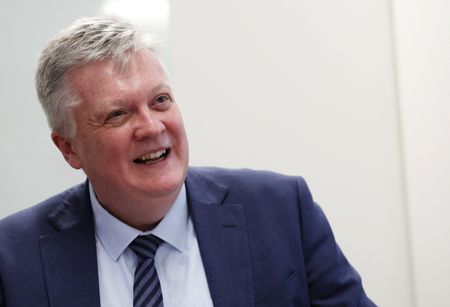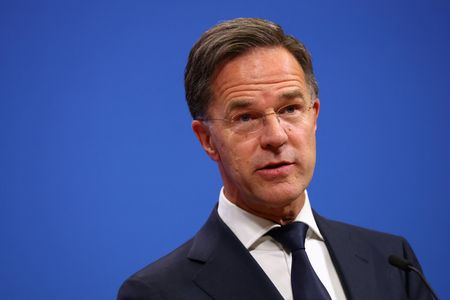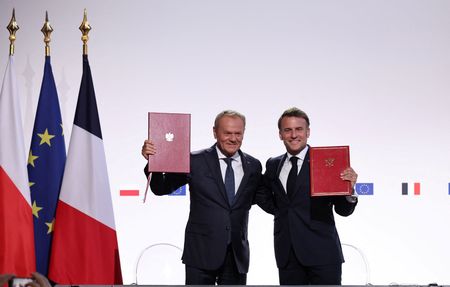By David Milliken
LONDON (Reuters) -U.S. tariffs are not likely to have a “dramatic” effect on Britain’s economy and the Bank of England should not neglect longer-term domestic pressures that might push up on inflation, BoE Chief Economist Huw Pill said on Friday.
Pill, who voted against Thursday’s quarter-point BoE rate cut, said he understood the BoE’s “gradual and careful” approach to future rate cuts as requiring it to be agile and alert to changes in the economy that might require a different approach.
“The analysis in the baseline forecast does not suggest that there’s a dramatic shift in the behaviour of the UK economy on the back of these trade announcements and trade uncertainties,” Pill said in a presentation to businesses.
On Thursday, the BoE said the impact of tariffs “should not be overstated” and was likely to lead to a 0.3% hit to the size of Britain’s economy over three years and reduce inflation by 0.2 percentage points in two years’ time.
That was based on U.S. tariffs in effect on April 29, before a deal was announced on Thursday which should see a reduction in high tariffs on U.S. imports of British cars and steel, though a lower 10% tariff on most other goods will stay.
Governor Andrew Bailey said earlier on Friday that this deal was “good news”, relatively speaking, but still left tariffs higher than they had been previously.
Pill said the central bank would not allow the uncertainty over tariffs to distract it from returning inflation – set to rise to 3.5% later this year – back to its 2% target.
“There are other forces – and maybe more long-lasting and underlying forces in the UK economy itself. Fergal (Shortall, BoE director of monetary analysis) emphasised the dynamics in pay and wages, and I think correctly so (which) certainly we should not neglect,” he said.
British wages are growing at an annual rate of around 6%, roughly double what most BoE policymakers think is a sustainable pace. On Thursday the BoE forecast private-sector wage growth would slow to 3.75% by the end of the year.
(Reporting by David Milliken; editing by William James and Andy Bruce)











